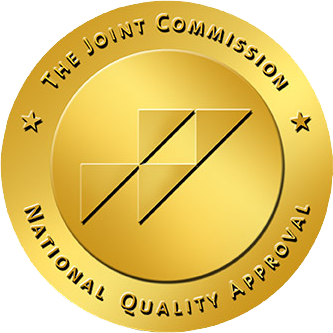You are a complex individual, with thoughts and feelings distinct from everyone else around you. Once you can acknowledge and address your deepest emotions, healing from addiction can occur.
This idea is the basis of Acceptance and Commitment Therapy (ACT). This action-oriented technique helps you recognize and accept every part of your inner life, even powerful, undesirable emotions. With acceptance comes commitment to a healthier life. ACT is one way we help you deal with the memories, feelings, and behaviors that inform addiction.
What Is Acceptance and Commitment Therapy?
Are you tired of fighting your past or actively avoiding how you feel to minimize painful emotions? Acceptance and Commitment Therapy is an extension of Cognitive Behavioral Therapy that includes essential acceptance and mindfulness strategies to help individuals foster positive and lasting mindset changes.
Hurt, regret, grief, fear, and sadness are inevitable in life. Yet, some experiences like trauma or addiction are so painful that you may attempt to bury those feelings and run from that part of yourself. The problem is that you can’t avoid these experiences forever. They creep into your life and inform decisions, often in destructive ways.
ACT teaches you to face and accept the hardships you’ve experienced. When you stop fighting how you feel, you realize you don’t need complete control to change. In fact, it doesn’t matter what’s going on in your life or how you feel about it. You can commit to the journey and move forward toward healing.

Why Is ACT Important?
One of the key components of Acceptance and Commitment Therapy is psychological flexibility. Psychological flexibility is the ability to use your energy and resources in the present instead of dwelling on emotions or painful thoughts and experiences.
In any situation, you have a choice — to persist in negative thoughts and behaviors or to change and make healthier choices. ACT teaches that you don’t have to fight or change how you feel to make a difference in your life.
With psychological flexibility, you can stay connected to the present and choose a new path — regardless of powerful emotions, painful memories, unpleasant thoughts, and even bodily sensations. Acceptance becomes an active process that leads to lasting change.

Who Can Benefit From Acceptance and Commitment Therapy (ACT)?
Dealing with addiction and trauma often involves grieving the loss of who you once were. While Acceptance and Commitment Therapy is helpful for many people, it’s especially beneficial in trauma-informed care for substance use disorders. When you understand the powerful emotions urging you toward drug or alcohol use, you can actively choose healthier coping mechanisms.
ACT offers many benefits to those struggling with addiction:
- Connecting to the present moment
- Unearthing your personal life values
- Committing to act in a way that honors your values
- Detaching from feelings and thoughts to reduce their power
- Observing life as a whole experience
- Opening up to new experiences
How to Do ACT Counseling
Working with an ACT therapist, you will explore your past and present, including traumatic events, relationships, and other challenges. You may look at past behaviors you’ve used to confront issues so that you can stop repeating patterns that ultimately don’t work. Through acceptance, you can stop fighting your past, feelings, and memories and instead commit to a more optimistic outlook that aligns with your values.
Your ACT treatment plan may include the following therapy techniques:
- Acceptance: Embracing the full range of your thoughts and emotions without denying, avoiding, or altering them.
- Mindfulness: Observing how you think or feel in the present moment without judgment. This clarity can help promote behavioral change.
- Cognitive diffusion: Distancing yourself from painful thoughts and feelings, thus reducing their harmful effect.
- Self as context: Understanding that your core self does not change in the face of distressing experiences, thoughts, or feelings. No matter how they make you feel, you are still you.
- Defining values: Defining your values helps you live life by your personal principles instead of being driven by inner turmoil or the expectations of others.
- Commitment: Committing to concrete steps that align with your values can lead to lasting, positive change. This technique often involves setting goals and developing new skills.
Meet With One of Our ACT Therapists at Sana
Acceptance and Commitment Therapy is just one of the evidence-based treatments we offer at Sana at Stowe. If you’re ready to heal from your past and begin your recovery, contact our team online or call 802-532-5277. We look forward to being a part of your healing journey.

Sana at Stowe has achieved accreditation and received
a Gold Seal of Approval® from The Joint Commission®.
This accreditation award verifies that Sana meets the most rigorous quality and patient safety standards of care, and shows a dedication to excellence across the full continuum of care. Learn more.

In-network with BlueCross BlueShield and OPTUM
Sana at Stowe is in-network with BlueCross BlueShield and OPTUM
and also accepts most out-of-network insurances, and accepts all private insurance. We provide financial assistance to help with the cost of treatment.


